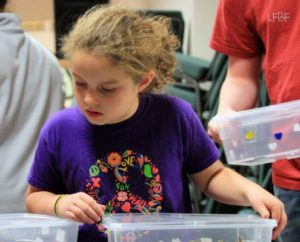Years of viral news articles describing Operation Christmas Child as a form of toxic charity have contributed to a movement of churches away from the Samaritan’s Purse ministry.

An Operation Christmas Child coordinator loads gifts into a van at Yokota Air Base, Japan, Nov. 10, 2016. (Photo/U.S. Air Force/Airman 1st Class Elizabeth Baker/Wikipedia)
A common concern is that the gift-filled shoeboxes sent to children in developing nations sometimes languish in warehouses, contain inappropriate or insensitive items or are harmful to indigenous economies.
Another strong, perhaps even leading factor for some is the ever-caustic political and social rhetoric of Franklin Graham, the president and CEO of Samaritan’s Purse and one of President Donald Trump’s most strident supporters.
Those factors contributed to the decision at Living Faith Baptist Fellowship in Elizabethtown, Kentucky, to find an alternative four or five years ago, said Pastor Roger Jasper.
The small, tight-knit congregation was once a solid OCC participant. Packing the boxes as a community was a much-anticipated event.

Roger Jasper
“It’s a very tactile missions experience,” he said.
But church members were hearing the troubling reports, he said.
“Around the same time, the face of that organization was just becoming increasingly unkind in public, increasingly political and nasty and it wasn’t anything our church wanted to be involved with,” Jasper said.
So, Living Faith opted to support a local Christmas gift box effort coordinated by Jasper’s mother, Cooperative Baptist Fellowship field personnel Scarlette Jasper.
She serves a number of impoverished counties in Southeastern and South Central Kentucky through her Olive Branch Ministries and CBF’s Together for Hope initiative.
“We wanted to keep doing this hands-on ministry but without all of the baggage,” he said.
‘Tangible ways to engage’
For many, the move began with reading or hearing concerning stories about Operation Christmas Child.
BNG’s 2017 story “Stuffing shoe boxes for the world’s poor? Maybe you should reconsider” struck a nerve in documenting examples of children baffled by the contents of OCC shoeboxes. It has been viewed more than 790,000 times.
Mark Wingfield’s 2017 BNG column “10 alternatives to Operation Christian Child” also went viral. It’s closing in on 100,000 views.

Mark Wingfield
“It has been surprising to me that the opinion piece I wrote a few years ago about alternatives to Operation Christmas Child has continued to be read online,” Wingfield said in an e-mail. “This illustrates, I think, that lay leaders and pastors urgently want to find other tangible ways to engage in Christmas activities but don’t know where to turn.”
Emily Joy, a Nashville-based spoken word poet, yoga teacher and church employee posted a blog in 2015 titled “7 reasons not to participate in Operation Christmas Child.”
“It went viral,” the former Southern Baptist said. “It’s still the most viewed page (on the blog). I get comments about it in the middle of the night in July.”
In the post, she said OCC can be disruptive to regional economies if it floods an area with toys or other items also available from local merchants.

Emily Joy
“It’s toxic charity,” she said. “It’s a waste of money and creates the condition where children in America are outsourcing their charity.”
Destinations also are questionable.
“We are sending toys to black and brown children overseas where they may not even celebrate Christmas,” she said.
And then there’s Graham.
“To me, he is representative of a brand of toxic Republican evangelicalism aligned with right-wing politics and sexism.”
‘They are planted there’
The motivation to leave OCC has come with entrepreneurial creativity.
CBF North Carolina saw that after recently soliciting Facebook comments on alternatives.

Mark Wyatt (Photo/CBF)
First Baptist Church in Raleigh “collected household items, toys and gift cards to share with refugee families via Welcome House Raleigh,” CBF field personnel Marc Wyatt responded in a comment. “Other churches have shown interest in joining.”
Still more commented that First Baptist in Morganton sends Christmas gift bags to a ministry in Guatemala, that First Baptist in Hamlet packs shoeboxes for homeless students and that First Baptist in Elon collects items for hurricane victims.
Another trend is to rely on partner ministries and missionaries for healthy approaches to holiday giving.
This year, members of Aiken’s First Baptist Church in South Carolina are packing 100 Hope Bags to be distributed in New York City’s Hell’s Kitchen by Rauschenbusch Metro Ministries.
It’s a relief to know that the ministry, and CBF field personnel Lesley-Ann Hix Tommey, know that population and its needs intimately, said Megan Turner-Doud, minister of students and missions.

Megan Turner-Doud
“They are planted there in that community and they are planting seeds in those people that we can’t do in person,” she said.
The congregation served as a regional collection point for OCC shoeboxes before dropping the commitment three years ago. Some families still participate, however.
“That’s their ritual with their families and we are 100 percent OK with that.”
And she gets it.
“I grew up doing OCC and packing boxes and most of the churches I have been at did that,” she said. “I remember the boxes I packed.”
‘Hearing their stories’
First Baptist Church of Christ in Macon, Georgia, focuses closer to home with its annual Christmas Store. Inner city customers may purchase brand-new toys at significantly discounted prices during the event one day each December.

Kelsey Stillwell
“The idea is to allow people to shop with dignity and choose what they want,” said Kelsey Stillwell, associate pastor of youth and missions. “Gift-giving means a lot if you select it and purchase it.”
Toys are initially purchased by church members at local stores or on Amazon.
“With Operation Christmas Child it’s easy to pack and ship it off and never come face to face with that recipient or know what their life is like,” Stillwell said. “The Christmas Store is a wonderful alternative because you are in the room with them, hearing their stories.”
‘Long-term, systematic impact’
Field personnel whose ministries are adopted by churches say they are seeing increased interest in Christmas time projects.

Scarlette Jasper (Photo/CBF)
Scarlette Jasper said her gift box project began in 2015 with 75 boxes.
But word spread quickly and other churches have gotten involved, enabling her to provide Christmas boxes to a much wider population. There are now 16 congregations participating.
“It took off,” she said. “We have done over 1,300 the past two years.”
Churches take comfort knowing Jasper knows the need and the people.

Christmas gift boxes ready for delivery in Southeastern Kentucky.
“For many of these children it will be the only Christmas gift they get,” she said. “Knowing the children here in our community, and knowing the need here, is truly beneficial.”
‘I never forget that story’
Some Baptist state leaders are trying to encourage more churches to follow suit and highlighting effective partnerships is one of the selling points, said Terry Maples, field coordinator of CBF Virginia.
The organization also invites churches to participate in its mission box project focused on partner ministries.

Terry Maples
“If they come to us they know they can trust this is a vetted source and there is a tangible need,” Maples said.
Many churches in the Baptist Fellowship of the Northeast have already embraced alternatives to OCC, Coordinator Phyllis Boozer said.
“It’s not totally gone, but I think most people are trying to move away from it,” Boozer said.
One that has not is Waterbury Baptist Ministries in Waterbury, Connecticut.

Phyllis Boozer (Photo/CBFbog)
The small, multicultural congregation has participated in the program for about a decade and packed 300 shoeboxes each of the past two years, Pastor Maner Tyson said.
A strong case for the program was provided by a Haitian girl adopted by church members.
“The child was part of our church and had received an Operation Christmas Child box when she was younger,” he said.
It meant the world to her to receive it, he said.
“That was a few years ago but I never forget that story.”
But there are those who are uneasy about the leadership of Samaritan’s Purse.

Maner Tyson
“Are they excited about Franklin Graham? No,” Tyson said. “I would say some are, but most in the congregation would not agree with his politics.”
And the OCC shoeboxes are a small part of the church’s year-round outreach, which includes a food pantry, Thanksgiving turkey giveaways, MLK clothes drives and other ministries.
That church is by no means alone. According to Samaritan’s Purse, the ministry has distributed more than 168 million Christmas shoeboxes in more than 160 nations since 1993. This year, it hopes to provide gifts to 11 million children around the world, compared to last year’s 10.6 million.
But for other congregations, the distaste around Graham has made leaving a no-brainer.

A young member of Living Faith Baptist Fellowship in Elizabethtown, Kentucky, helps pack Christmas boxes. (Photo/Courtesy of Roger Jasper)
The key to making a switch is ensuring that the fellowship around packing the boxes is not lost in the process, Roger Jasper said.
The current box-packing event is combined with the church’s annual Hanging of the Greens on the first Sunday of Advent.
“They didn’t want to stop that and we haven’t,” Jasper said. “It’s just a fun evening and an opportunity to do a small thing for someone.”
Related commentary:
